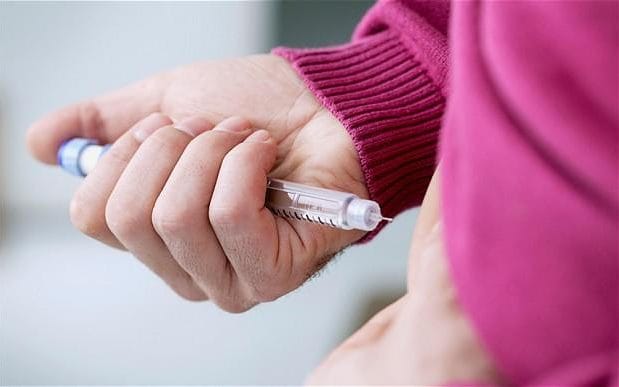It seems the world is about to do away with a daily take injection for type one diabetics after British scientists launched an ambitious project to create a system which delivers insulin automatically.
Presently, people with type one diabetes must undergo prick tests several times a day to monitor their blood sugar, and inject themselves with insulin when it gets too high.
The daily chore is time-consuming and invasive, and for children if often means they cannot attend parties, sleep-overs and camps where parents cannot monitor their condition.
But now scientists at the University of Birmingham are developing smart capsules which would travel through the body and release insulin when they came across high levels of blood sugar.
The team has already discovered molecules which binds to glucose from which they plan to build a shell which can contain insulin but melts away in the presence of sugar, releasing its payload.
“We want to make the lives of patients better,” said Dr John Fossey, a senior lecturer in the school of chemistry at Birmingham, who is leading the project.
“Imagine if patients could go through a week without having to worry about their blood sugar levels, or injecting themselves.
“I’ve talked to the parents of kids with type one diabetes and they say, if only my children could do things, like go to sleepovers, their lives would be so much better. Most parents aren’t confident enough to entrust injections to other adults.
“We’re trying to create a system which will deliver insulin in response to glucose levels, releasing more if blood sugar is high.
“We can now recognise glucose in the body and my proposal is to take the same chemistry, take these molecules and build a container for insulin which will break open when it comes across glucose and deliver its cargo.
“The a patient could be injected with these containers, say once a week, and they would slowly degrade in the presence of glucose to keep blood sugar at a constant level.”
The Birmingham scientists say they are confident that the capsule will be ready for animal trials within five years, and humans soon after.




